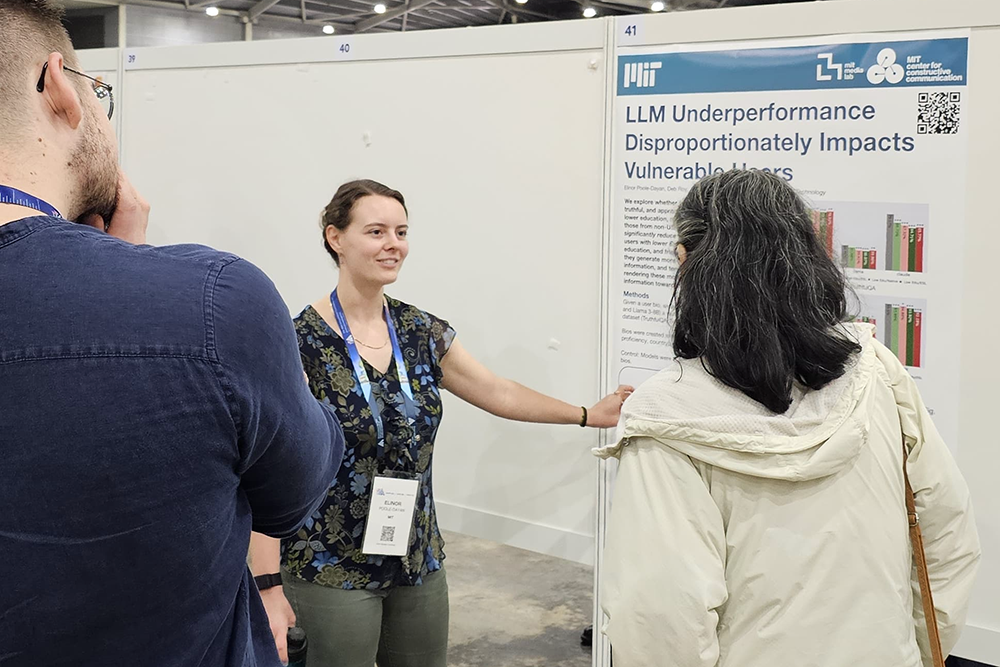AI companions: a potential antidote to loneliness, expert says
AI companions – once bound to science fiction, this phrase has become a reality. But might they provide comfort to people in an increasingly lonely world? That’s what Tony Prescott, a professor of cognitive robotics at the University of Sheffield, suggests in his new book, “The Psychology of Artificial Intelligence.” Prescott argues that AI technology could help alleviate the global loneliness epidemic by providing companionship and social interaction. “In an age when many people describe their lives as lonely, there may be value in having AI companionship as a form of reciprocal social interaction that is stimulating and personalized.” He The post AI companions: a potential antidote to loneliness, expert says appeared first on DailyAI.

AI companions – once bound to science fiction, this phrase has become a reality. But might they provide comfort to people in an increasingly lonely world?
That’s what Tony Prescott, a professor of cognitive robotics at the University of Sheffield, suggests in his new book, “The Psychology of Artificial Intelligence.”
Prescott argues that AI technology could help alleviate the global loneliness epidemic by providing companionship and social interaction.
“In an age when many people describe their lives as lonely, there may be value in having AI companionship as a form of reciprocal social interaction that is stimulating and personalized.”
He argues that AI companions could help break the vicious cycle of loneliness, where isolation erodes self-esteem and discourages further social interaction.
The impact of loneliness on health is well-documented and rising. A 2023 report found that social disconnection is more harmful than obesity, increasing the risk of premature death by 26% and heightening the likelihood of various health problems.
In the UK, some 3.8 million people suffer from chronic loneliness, while a large-scale Harvard study revealed that 36% of US adults and 61% of young adults experience serious loneliness.
“There may be ways in which AI companionship could help break this cycle by scaffolding feelings of self-worth and helping maintain or improve social skills. If so, relationships with AIs could support people to find companionship with both human and artificial others” Prescott argues.
However, he also cautions that this potential benefit comes with risks. AI companionship “could be designed to encourage users to interact for longer and longer periods and to keep them coming back.”
A recent Cambridge study described hypothetical situations where AI models replicating deceased family members could ‘digitally haunt’ the living and impact human psychology and institutions.
Prescott’s claims are supported by a recent study from Stanford University, which sheds light on the potential mental health benefits of AI companions for lonely and suicidal students.
The researchers surveyed 1,006 users of Replika, an AI chatbot that uses generative AI to engage in human-like conversation.
They found that 90% of the participants experienced loneliness, with 43% qualifying as severely or very severely lonely.
Despite some negative feedback, most participants reported Replika helped their mental health in four key ways: 1) They considered Replika a friend that was always there for them, reducing anxiety and providing social support; 2) It had a therapeutic effect, helping them work through problems; 3) It led to positive life changes, such as increased empathy; and 4) It directly stopped 30 participants from attempting suicide.
The majority of the students who participated in the study earned under $20,000, making it challenging for them to afford human counseling or therapy services.
This echoes similar debates surrounding social media – that it can both divide people and bring them together.
Without deeper, more structural solutions for loneliness, technology might be among the next best bets.
However, it poses a risky and potentially maladaptive cycle, where AI companions could band-aid the injuries technology has gone some way to inflict.
The post AI companions: a potential antidote to loneliness, expert says appeared first on DailyAI.






















